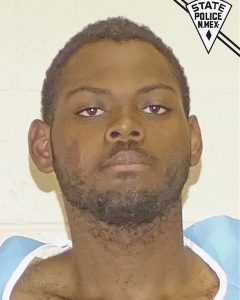by Nancy Christofferson
LA VETA — On Monday, January 22, 1883 – 135 years ago this week – La Veta lost to death one of its most illustrious early residents. He was C.E. McComb, and when he died, he was sitting town mayor and president of the school board.
Cyrus Earl McComb hailed from Vandalia, Illinois, born, most likely, around 1857, give or take. He married a Missouri girl named Pauline Quick, and they had an infant son, Dana. Evidently he came west from there, as did his old friend J.M. Elrod, another historical figure of Walsenburg and La Veta.
McComb was sent to La Veta by the Denver and Rio Grande Railroad in the summer of 1880. He replaced A.E. Palmer as station agent. The post may have been appealing to McComb because he was tubercular, and high, dry climates were thought to be beneficial to those with lung disease because of their clean air. Even the scent of pines was believed to be curative.
Station agents, also called depot agents, were about the busiest people employed by the railroad. They were in charge of everything and everyone on every train that visited their building. Luggage, freight, mail, little old ladies, livestock – everything that traveled by rail. His job was strenuous with long hours and few rewards. It was not a dream position for a tubercular, but McComb evidently filled it with good humor and efficiency.
Just a few months after the arrival of the McComb family in La Veta, the newspaper the Huerfano Herald also made its appearance. The first issue came out November 4, 1880, and from that publication our information about McComb is included. That first issue, in fact, says he was station agent. The third issue contains an advertisement for the sale of 16 “good stands of bees” by McComb. There was no information about where these stands were located, but McComb owned a ranch on Echo Creek south of La Veta. It may have been from that site he harvested 40 tons of ice he harvested for the next summer’s use.
The March 10, 1881 issue informs the public that McComb not only replaced A.E. Palmer as agent, but also bought Palmer’s house and 40 acres immediately north of town. He wasted no time starting construction of new homes, and offered every second lot free to those who would build homes or businesses within 90 days. The residential lots went quickly, and others soon began building their own homes. Most of these were modest, with the usual plan being a “one and a half story cottage” of three or four rooms, often in an “L” shape. The location just north of the depot and railroad yards made it attractive to D&RG employees like himself who desired the short walk to work. By June there were five homes on First Street and attention turned to filling up Second.
In March 1881 he bought another 40 acres and promised to continue giving away alternate lots. While peddling real estate, McComb was enjoying himself with several diversions. In February he called a meeting of his fellow Presbyterians to organize and eventually build their own church. The resulting congregation formally organized Sunday, April 3, 1881, with seven members including the McCombs and Mrs. McComb’s sister Miss Sallie Quick, a school teacher in town. Young Dana McComb was baptized into the church the same day to become the eighth member.
In March the Huerfano Herald noted that McComb “had consumption when he came here last summer but is now well”. So well, indeed, he was a member of the local dramatic society and had taken part in a production called “The Irish Tiger” along with his wife. In June he put his own new house on the market, as a “nice story and a half frame house of four rooms on Locust [later Main] Street… south and east front, portico, closet, cellar, smokehouse, coal house, privy, etc.” He eventually rented it out. The house at that time fronted Locust/Main, but it was actually on Lot 4 on First, with three empty lots between it and Main. His wellness was not to last, however. In September he resigned as agent due to ill health. A son, Cyrus Earl Junior, was born in mid month, and was called Earl. One presumes he knocked around for a while, selling real estate, before in October he leased a large building on west Francisco with the stated intention of opening a furniture and hardware store. Quite soon after he traded lots with a local builder, J.C. Goss, and moved across the street into the small carpenter’s shop. It was probably the same carpenter who built a 14 by 82 foot addition onto the east of the building in November, with housekeeping rooms in the rear and the store facing north.
Here he sold tinware, stoves, notions and other miscellany, with a special lot of Christmas gifts including stereoscopes, “fine paintings” and novelties. He even built a new sidewalk (board). 1882 came in with the announcement that the Town of La Veta was “not legal” due to a change in state law. The town was to be re-incorporated, legally, and what was called McComb Addition would be included within corporate limits with the reorganization. And so it was. One of the stipulations in the new law called for the election of a mayor and six-member town board along with a clerk-recorder and a treasurer (previously, a board of five trustees elected a chairman who acted as mayor, just like in Walsenburg). C.E. McComb was elected mayor on a vote of 42-21 over Fred Pischel, co-owner of the flour mill and leader of the La Veta Brass Band. Later that month McComb began selling out his hardware stock at cost with a goal of handling furniture only. In May he built two more rooms onto his home and store, and surrounded the lot with a picket fence. At the same time he was elected president of the school board for District No. 9, La Veta.
Alas, he also suffered several hemorrhages of the lungs that week. He rallied quickly, however, because within two weeks he had four houses under construction in his addition and was driving a brand new buggy. By August he was feeling well, according to the Herald, and was back “on the streets” again. In September ’82 McComb sold out his tinware and hardware in an auction, and sold 10 lots in the addition. Sometime in November, apparently, he had a relapse and went to Canon City to recuperate. His wife ran the store in his absence, while babysitting her two small children. In December she sold the furniture stock to the local lumber yard. After the death of her husband in January, Mrs. P.Q. McComb, as she was known, announced in August she would return to Missouri to teach. She left, but by the time of the 1885 census in Huerfano County, she and the kids were back in La Veta. In 1893 she took her sons and moved to Rouse coal camp to teach. In 1896 they moved to Fort Collins. Obviously PQ had a fondness of La Veta. She was in and out of town until she finally sold her home in McComb Addition in 1902, though she still owned a lot on Francisco.
In 1916 was an announcement of the marriage of one Joseph McComb and Edythe Martin in Oceanside, California. Joseph must have been P.Q.’s grandson, judging from Edythe’s age. She was the daughter of F.L. Martin, longtime La Veta businessman, and a former neighbor of the McCombs, born in the 1890s. Joseph died during World War I of pneumonia on the battleship “Pueblo”. Ironically, his widow Edythe, who had returned to La Veta after his death, was married in 1921 to William Lee Warner, former La Veta Bank cashier who in 1950 was elected City of Pueblo Mayor. How odd for Edythe to have lost a husband on the ship “Pueblo” and later was married to the mayor of Pueblo. PQ had moved to California herself, and so had Earl. They were both teaching there by 1906.
In August 1923 the La Veta Advertiser carried a surprise announcement, “The McComb family is back again and occupy the Gibbons house on Field Street”.




